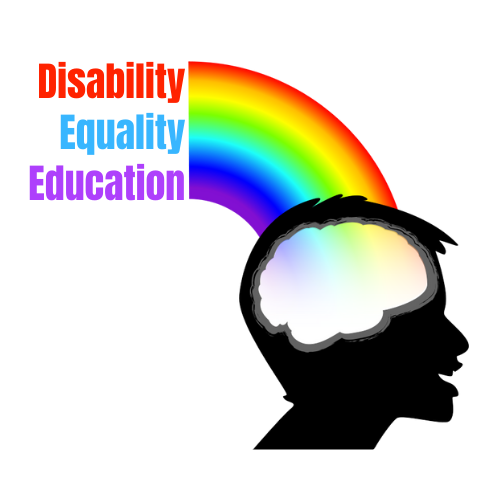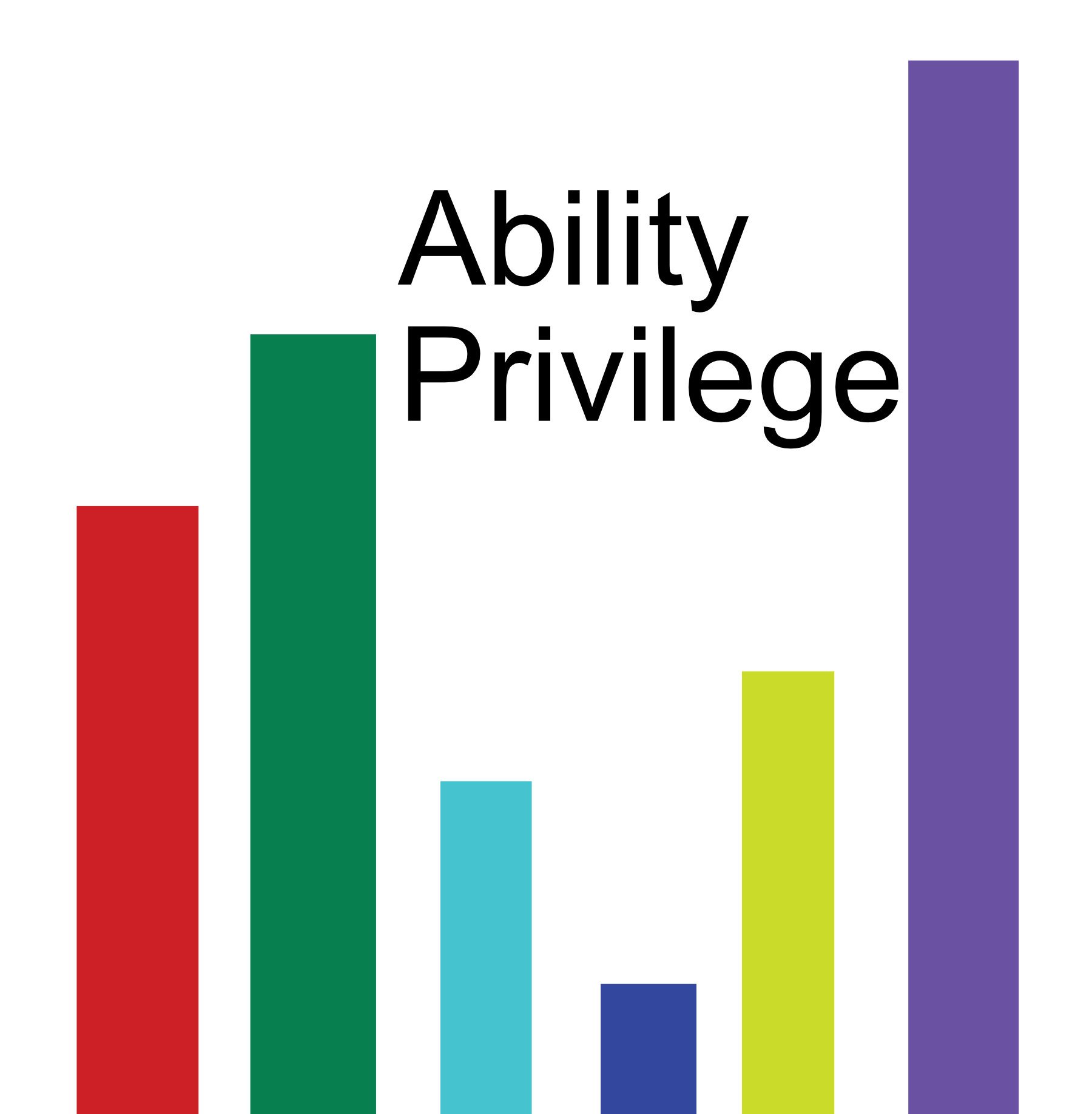
Ability Privilege Lesson
This activity is designed for students to reflect on their own lives and their privilege status. Unfortunately in our society certain groups can navigate with ease, while others must fight for their basic rights. Students will reflect on how their ability (able-bodied or disabled) affects their lives and how they can use their privilege to help others.
Image Description: various heights of different colored bars lined up next to one another. The words “Ability Privilege” towards the top.
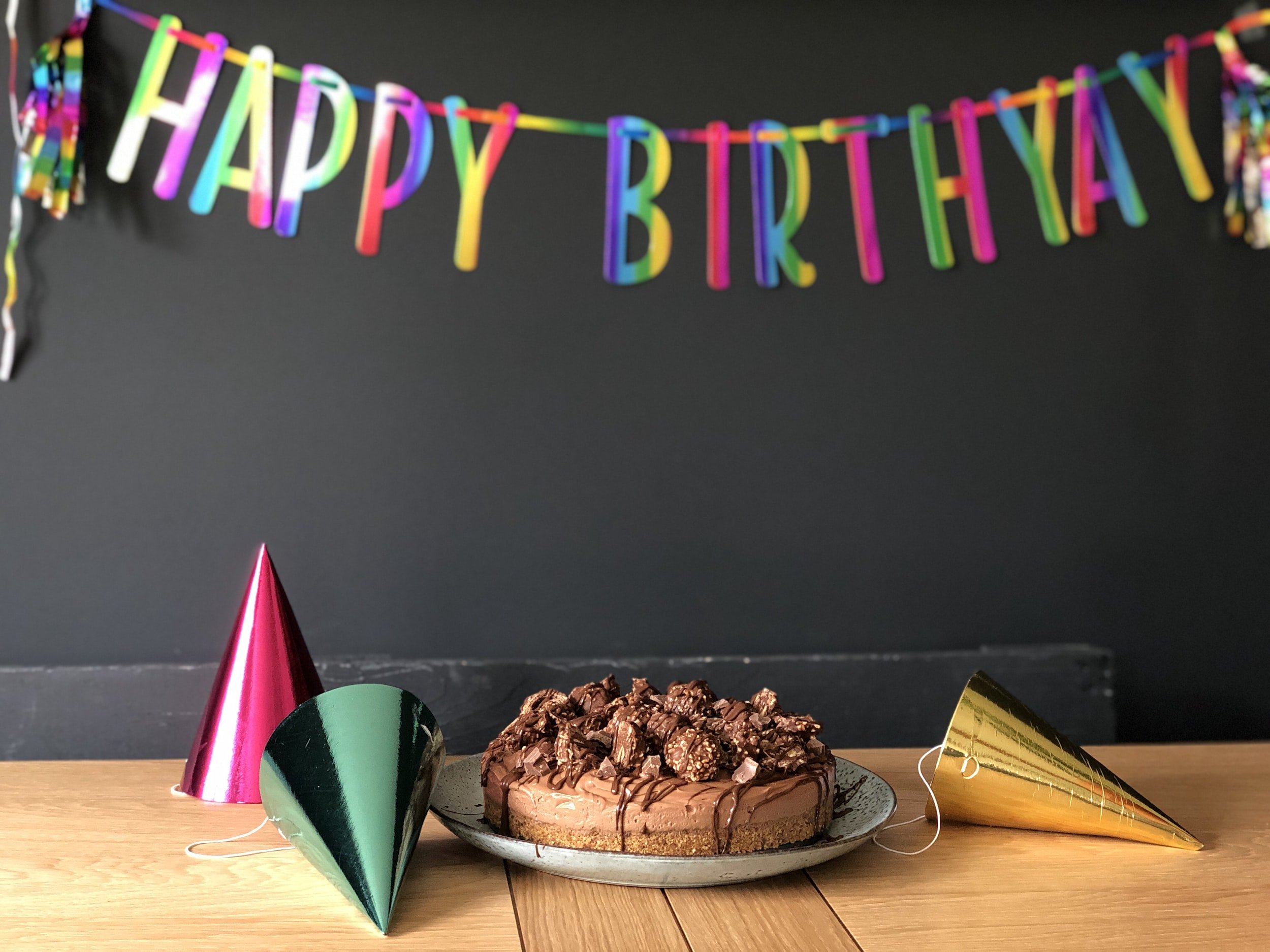
Birthday Party Lesson Plan
In this lesson, students will consider what accommodations they can make in order to be more inclusive of their peers with disabilities.
Image description: Photo of cake, birthday hats and Happy Birthday banner

Circles Lesson Plan
This lesson will use wheelchair wheels to teach the concept of circles. Students will identify circles in wheelchair wheels and then draw/sculpt their own.
Image description: 2 wheelchairs and 4 circles
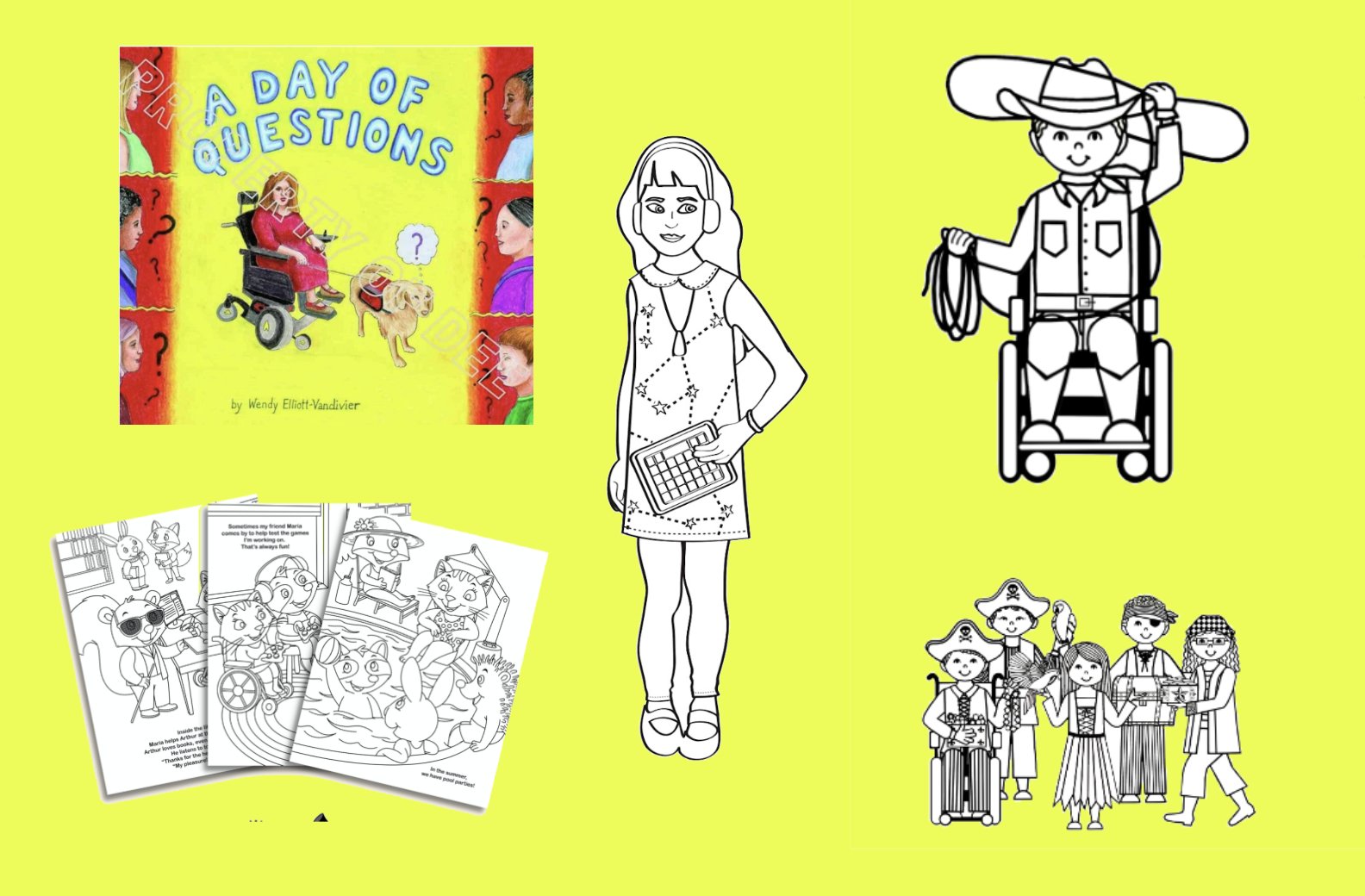
Coloring Books, Pages and Clip Art with Disability Representation
Including coloring pages and artwork in lessons (some of these allow you to use as clip art) that includes disability representation furthers the goal of regularizing disability by seeing it and offering opportunities to learn and ask questions.
Image Description: small images of the coloring books on a yellow background
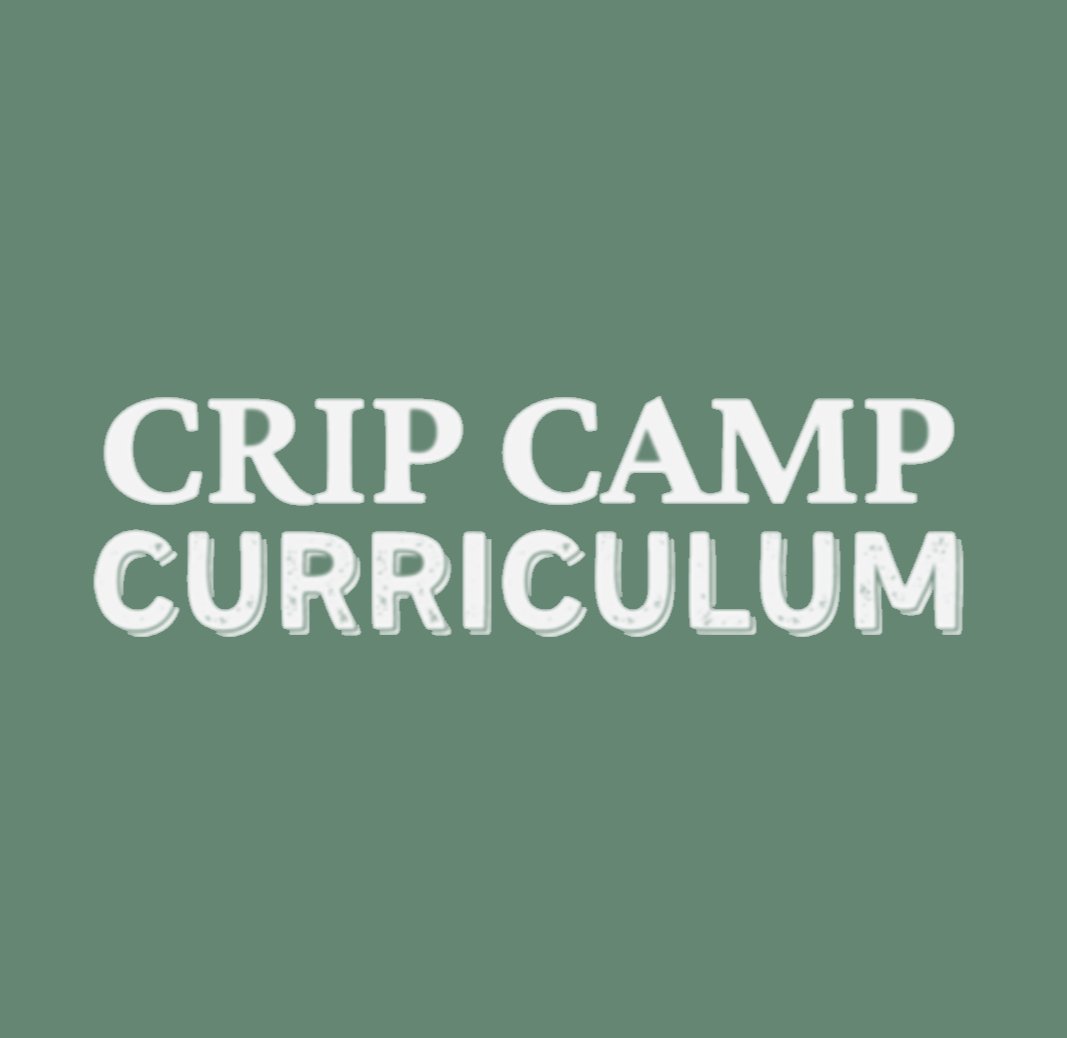
Crip Camp Curriculum
In this collection of lesson plan, students will learn about media literacy and apply those skills to the media created for the film CRIP CAMP; will explore the concepts of power and justice, and how they relate to disability rights and disability justice; will explore the concepts of power, civil rights, and human rights, and how these concepts relate to disability rights, and then apply those skills to the media created for the film CRIP CAMP; will understand how language is connected to power and ableism; and discuss how the strategic use of power helped the disability rights movement in the US evolve.
Image Description: “Crip Camp Curriculum” in white text on green background

Critical Media Analysis: Autistic characters in children’s media
Summary:
In this lesson, students will look at four different characterizations of autistic children in contemporary media. They will watch excerpts or videos featuring the characters, read about the characters, and study how they were created. They will then fill out an evaluation chart to analyze the different depictions. They will have a group discussion as a class and write a reflective response.
Issues considered will include: character’s role within the show/movie; who was involved in writing/creating the characters; what public response has been; and so on. The lesson will conclude with a group discussion and students will complete a journal-style piece of writing as an exit ticket.
The characters that the students will learn about are:
Julia from the television show Sesame Street;
Pablo from the television show Pablo;
the main character from a Pixar short called Loop;
Carl, from the show Carl the Collector.
Image Description: Upper left quadrant is Julia, a muppet with yellow skin and orange hair. Upper right quadrant shows the main character from Loop, a girl with brown skin and dark hair who is reaching with her hands to touch reeds. Bottom left quadrant shows Pablo, a hand-drawn boy with light skin standing on a green hill with a rainbow behind him. Bottom right quadrant shows Carl, an illustrated raccoon wearing an argyle sweater.

Disability History through Primary Sources
As our friends from Engaging America state, “Primary sources … can provide entry points and deepen exploration into historical events. Primary sources add immediacy, such as the faces in a photograph, the emotional tone of a drawing or song, or the complex look of a handwritten document. Documents from multiple points of view can illuminate conflicting ideas and events. Varied media, including maps, oral histories, published reports, and graphs offer many options for connection and investigation”.
We share these collections or primary sources as tools to continue introducing disability into the conversation from natural perspectives, using disabled people to tell their own stories whenever possible.
Image Description: Article from Dallas Times Herald, Wednesday, January 14, 1986 in section “Community Close-Up” titled “Police on sidewalk wheelchair ramps changed”
Full image description can be found at: https://adaptmuseum.net/gallery/picture.php?/451/category/16

Disability Justice Lesson Plan - Education Amplifier
In this lesson plan, you’ll find six modules that you can mix and match, that all teach about different aspects of disability rights and disability justice.
Image Description: Education Amplifier’s illustration of Lydia X.Z. Brown

One Out of Five lesson series
The purpose of this lesson is to humanize the experience of disability by focusing on student-voice videos, recognize diversity within the disability community, and discuss ways to promote accessibility. This is the first in a series of 5 lessons by Washington State’s One Out of Five Disability History and Pride Project.
Image Description: Groups of students sit and stand, talking in clusters. The profiles of the students of different ages, races, and abilities is on a colorful background of yellow, orange, and green. The dominant image is the silhouette of a male student in dark blue reading a book. The title is: One Out of Five: Disability History and Pride Project. “One” and “five” are spelled out in American Sign Language. At the bottom, Braille reads: “pride” and “history.”]

Patient No More: People with Disabilities Securing Civil Rights
Teaching the story of the 504 occupation, the focus of the Patient No More exhibit, will undoubtedly leave students with a new perspective toward living with a disability. “Patient No More” offers a story about the creativity and strength that comes out of the disability community, an incredible example of how change can happen from the bottom up. It's also a story about how disability rights have changed the lives of all Americans in ways they might not realize.
Image Description: “Patient No More - People with disabilities securing civil rights” black and white photo of protestors with capitol building in the background, many in wheelchairs, one with a sign on the back of their wheelchair that says “We Shall Overcome”
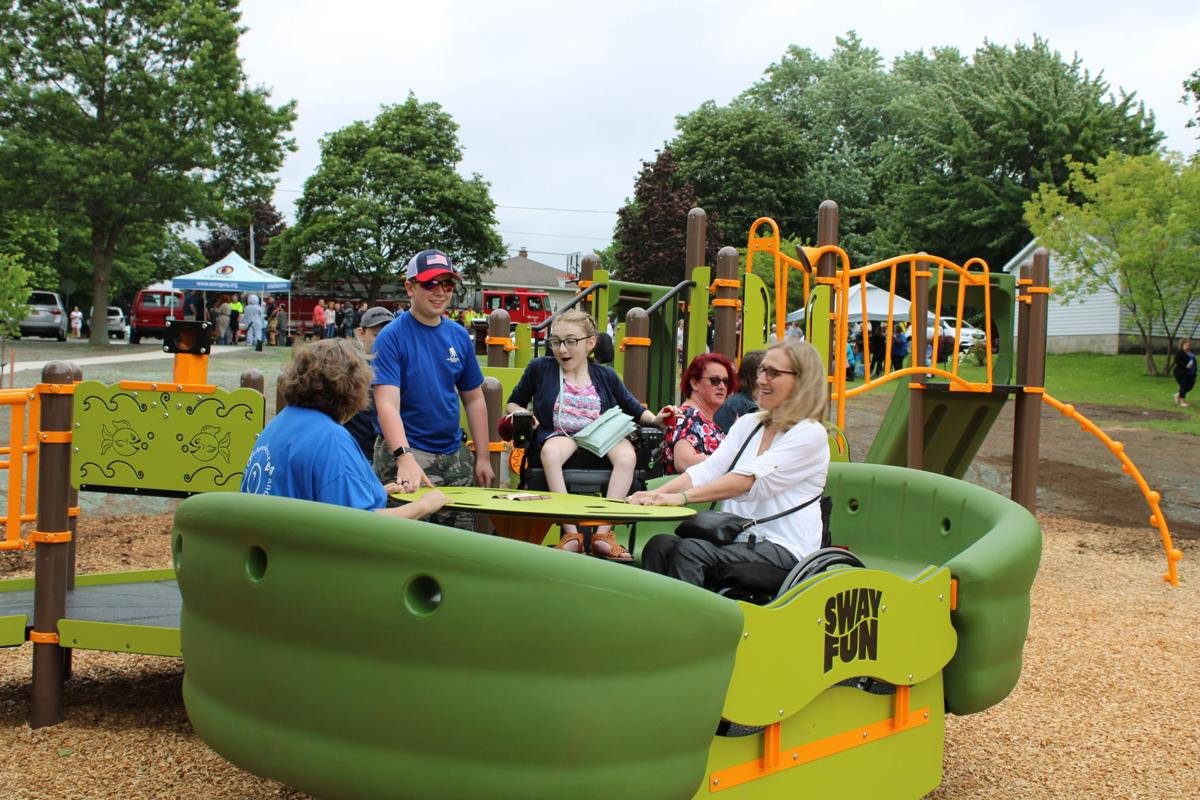
Play Map: Designing Inclusive Spaces
Students will map out where they have recess. Students will be asked to reflect on the physical accessibility of their environment (i.e. 3 steps to go from classroom to outside, playground has woodchips and a step up). They will draw out a map for their current environment and then create new map that is a inclusive play area.
Image description: wheelchair accessible playground equipment and people playing on it

Portrait of the Whole Person - Disability Rights Washington
Portrait of the Whole Person is a curriculum for elementary school students designed to teach students how disability rights fit into the broader civil rights movement, to perceive disability as a reflection of societal views of differences, and to treat people with disabilities with respect and dignity. It contains four distinct lesson plans comprised of three in-class instruction lesson plans and one lesson plan governing the research and writing of a biographical sketch and creation of a portrait of a notable person with a disability. It is also complete with a graphic organizer, rubrics, a power point, and a list of references students can use for research.
Image Description: Disability Rights Washington logo with “Portrait of a Whole Person Curriculum Overview” written below and drawings of 3 different people in colored pencil.
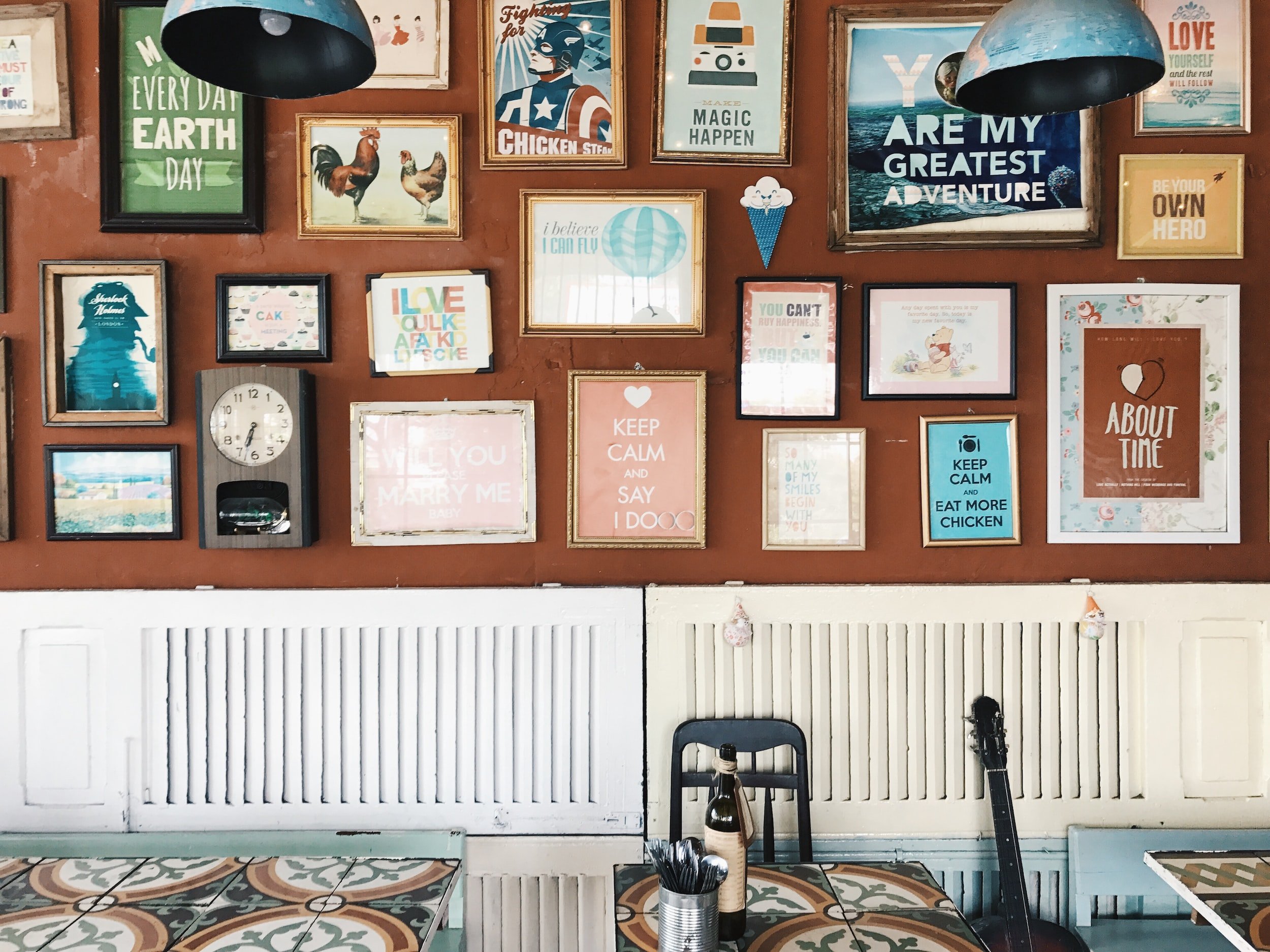
Posters with Disability Inclusive Content
Posters with disability representation. Most are free to download, though some can be purchased as well.
Image description: Corkboard wall with many signs of assorted size and colors.

Scientific Racism and Scientific Bias Lesson
Students will learn about the history of how science has been used to enforce racism. Students will think critically about scientific bias.
Image Description: Sepia tone background. “Scientifc Racism and Scientific Bias” in white letters

We Want to Go to School
Using the book "We Want to Go to School," students will learn about the segregation of students with disabilities in the school setting. They will learn about the barriers that prevented students from attending school and the progression and processes to challenge and remove those barriers.
Image Description: Cover of We Want to Go to School! The Fight for Disability Rights by Maryann Cocoa-Leffler & Janine Leffler. The cover artwork shows five children behind a table that has papers and a gavel on it.
